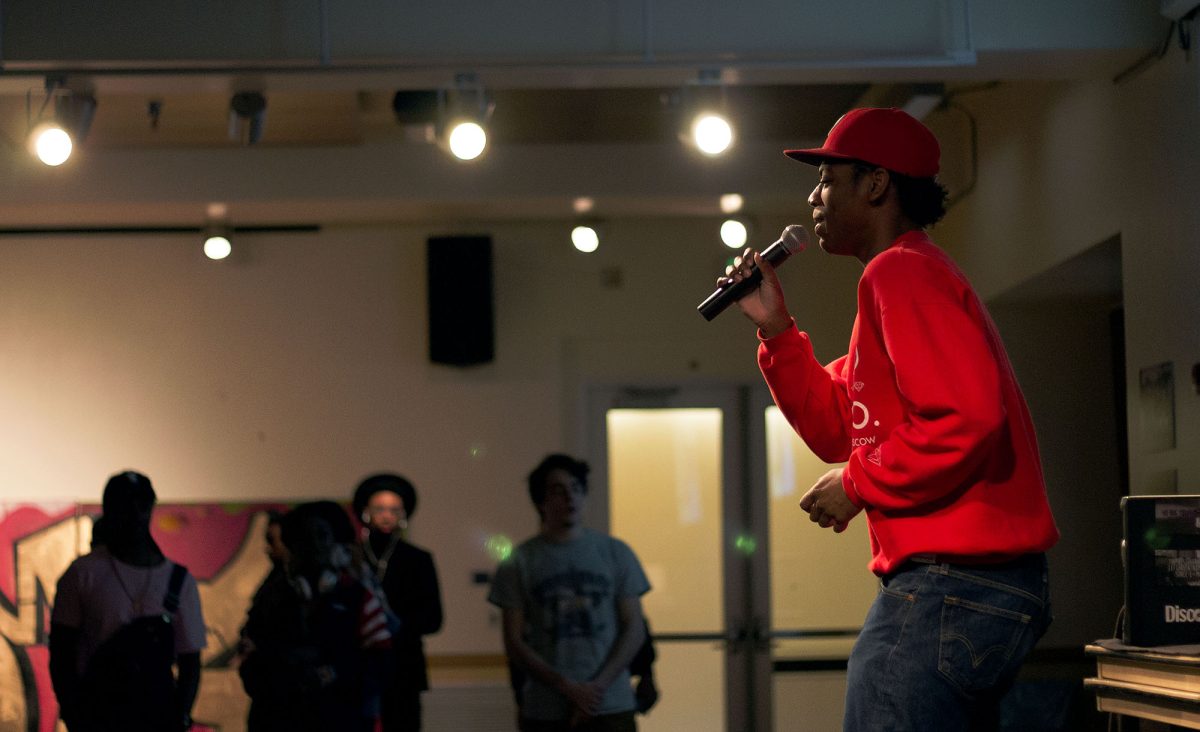This is the final part in Ethos’ three-part series in which alumni of the magazine share memories of their time here. Statesman Journal political reporter Gordon Friedman writes on his tenure as the magazine’s Editor in Chief, reporting on the Malheur Refuge occupation for USA Today, and what it takes to be a journalist after college.
WHEN A NEW ISSUE OF ETHOS WOULD ARRIVE from the printers, I’d fill my car with boxes of magazines and deliver them to campus, one of my responsibilities as Editor in Chief. I drove with the windows down to avoid the overwhelming smell of ink. Once on campus, I’d use a knife to slash open a box of magazines, eager to peer in and see the final product.
Putting together an issue of Ethos often required working through the night on story copy, fretting over design elements and making sure there was money in the bank to pay for the magazine. Equally as often, I’d lose my sense of humor beneath the feeling that I was herding cats, only to find my stubborn seriousness comical in private moments of clarity, simultaneously realizing that I love this work.
I’ve seldom felt a satisfaction like stocking magazine racks with fresh copies of Ethos. Yet I think it’s the blunders I suffered while at Ethos’ helm that taught me the most, about being an editor and a journalist, coworker and colleague, and especially about being a friend. What could go wrong with stories usually did, and in the months since I’ve graduated, reflecting on how I handled those situations (i.e., poorly) has, I believe, made me a more compassionate journalist and a humbler human being.
It’s the lessons I learned from the situations when my demeanor was insufferable while Ethos’ editor, to looking back on those who suffered with me, and subsequently suffering through my own shame over how I handled it that helped me grow and plunge headfirst into a real-world, daily newspaper job. Journalism school can teach you to report, but a willingness to understand yourself and others may be the best preparation for learning to write well, make daily deadlines, and survive newsroom politics.
Since leaving Ethos, I found a job covering state government for the Statesman Journal, the newspaper in Oregon’s capital city, Salem. In my short while there, I’ve covered a gamut of issues: daily reporting on the Oregon Legislature, state agency scandals, cutthroat politics, an indebted public pension system, failing infrastructure, cannabis laws, crime, natural disasters, and more.
I’ve also been lucky enough to report for USA Today on the occupation of the Malheur National Wildlife Refuge by armed anti-government protestors; the Statesman Journal’s parent company, Gannett, also owns USA Today, which tapped me to be a temporary correspondent for the story. I spent more than a week in Burns reporting the story. The empathy and creative problem solving I learned while at Ethos certainly informed my coverage.
Another thing I learned while working at Ethos is that earning the praise of your peers and being crowned with laurels, however well deserved, is not necessarily the mark of a good journalist. The truth is that I am no better than the reporting and writing I’ve done today.
Speaking of which, another deadline is always around the corner, and time is wasting.
To read Friedman’s final editor’s note for the magazine, click here. This series is Ethos’ contribution to the University of Oregon School of Journalism and Communication’s centennial celebration.
Categories:
And now, a word from our alumni: Gordon Friedman
April 11, 2016
This is the final part in Ethos’ three-part series in which alumni of the magazine share memories of their time here. Statesman Journal political reporter Gordon Friedman writes on his tenure as the magazine’s Editor in Chief, reporting on the Malheur Refuge occupation for USA Today, and what it takes to be a journalist after college.
0
Donate to Ethos
Your donation will support the student journalists of University of Oregon - Ethos. Your contribution will allow us to purchase equipment and cover our annual website hosting costs.
More to Discover














